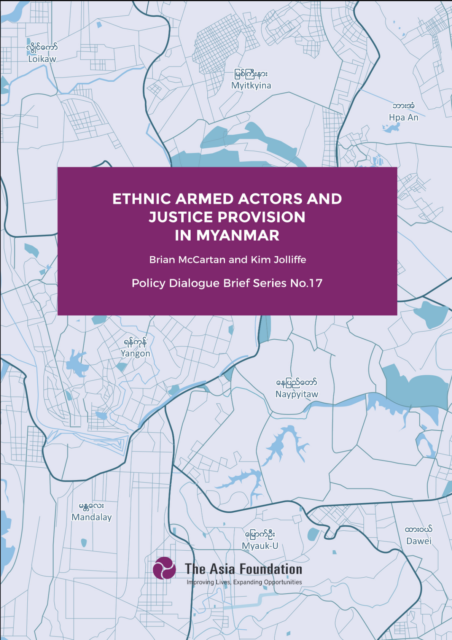Ethnic Armed Actors and Justice Provision in Myanmar

The justice systems of ethnic armed actors (EAAs)1 have a major impact on the lives of many people in Myanmar’s ethnic areas. Depending on the location, they provide either an alternative to the government’s justice system, or the only justice local people have ever known. In the context of the ongoing peace process, understanding the role of EAA justice systems is key for discussions of future governance arrangements in conflict-affected areas.
Examples from other states demonstrate that one of the first elements established by armed organizations is a force capable of policing the population. This is often the leadership’s highest priority, and may determine if the organization is able develop a state-like governing structure. The second feature is the creation of a dispute-resolution mechanism or legal system. This may have a formal judicial structure or be a more ad hoc system. In order to be seen as legitimate, the system needs to be useable by civilians in disputes with each other as well as with the armed organization. Armed organizations that provide systems of justice differ greatly in the extent to which they do so informally or through formally established rules. These organizations adapt elements of existing justice institutions and bring them into line with the organization and local norms.


